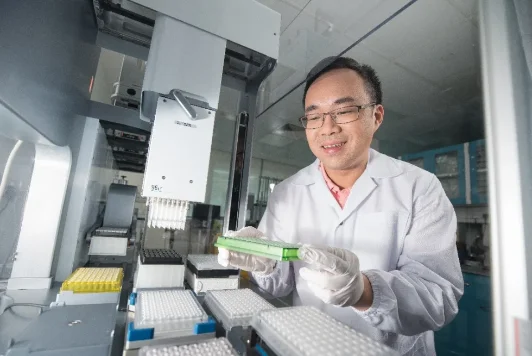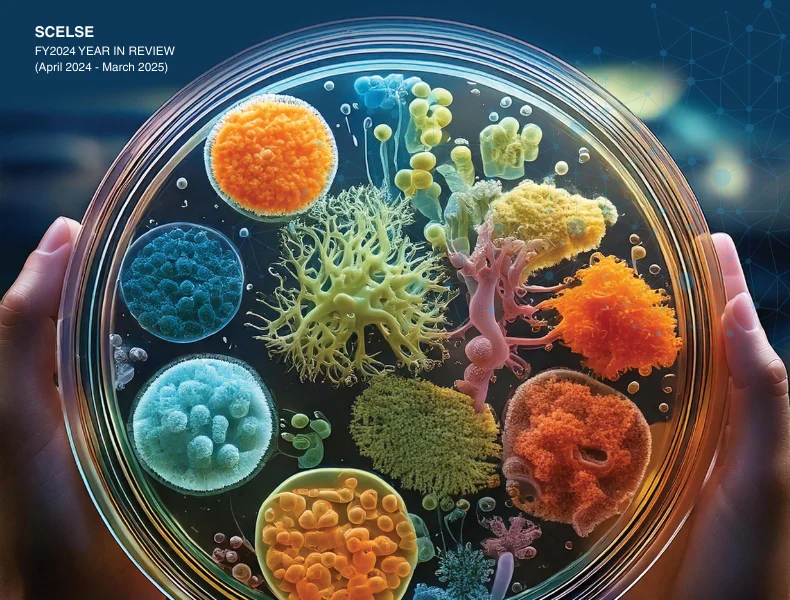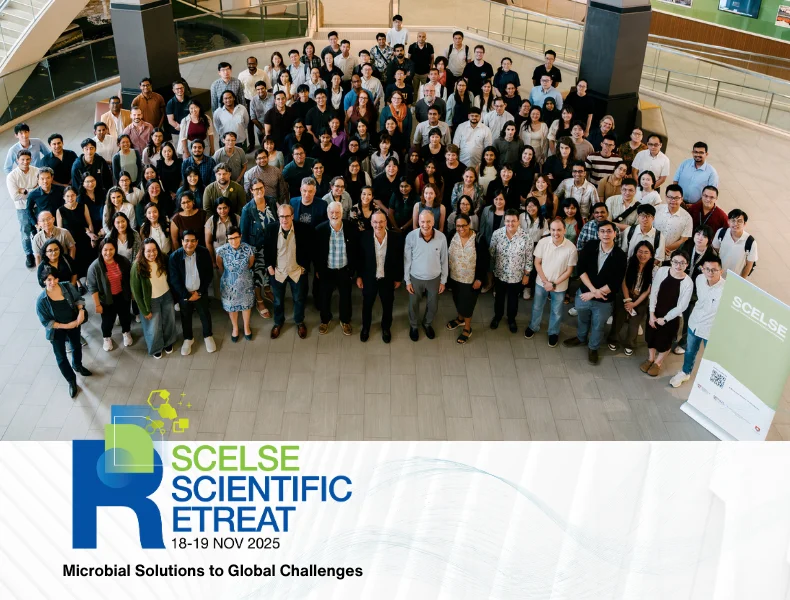
Who we are
SCELSE (pronounced “cell-see”) is a leading multidisciplinary biofilm and microbiome research centre and a distinguished Research Centre of Excellence. SCELSE advances sustainability and translational impact through cutting-edge research and innovative solutions, driving progress in:
- Healthcare
- Industry
- Society
- Environment
SCELSE’s Research Structure
Mission: “To discover, control and direct the behaviour of microbial biofilm communities and microbiomes for sustainable environmental, engineering, public health and medical applications.”
Navigation Help
Find tailored SCELSE content easily. Select audience type and purpose below:
Latest Scientific Publications
-
1 May, 2025
A cationic main-chain poly(carbonate-imidazolium) potent against Mycobacterium abscessus and other resistant bacteria in mice
-
13 Feb, 2025
Rapid shift of gut microbiome and enrichment of beneficial microbes during arhatic yoga meditation retreat in a single-arm pilot study
-
5 Feb, 2025
Metagenome-assembled genomes (MAGs) of the emerging pathogen Shewanella algae from enrichment of coastal seawater, sediment, and algae at St John's Island, Singapore
-
5 Dec, 2024
Antimicrobial residues in meat from chickens in Northeast Vietnam: Analytical validation and pilot study for sampling optimisation



